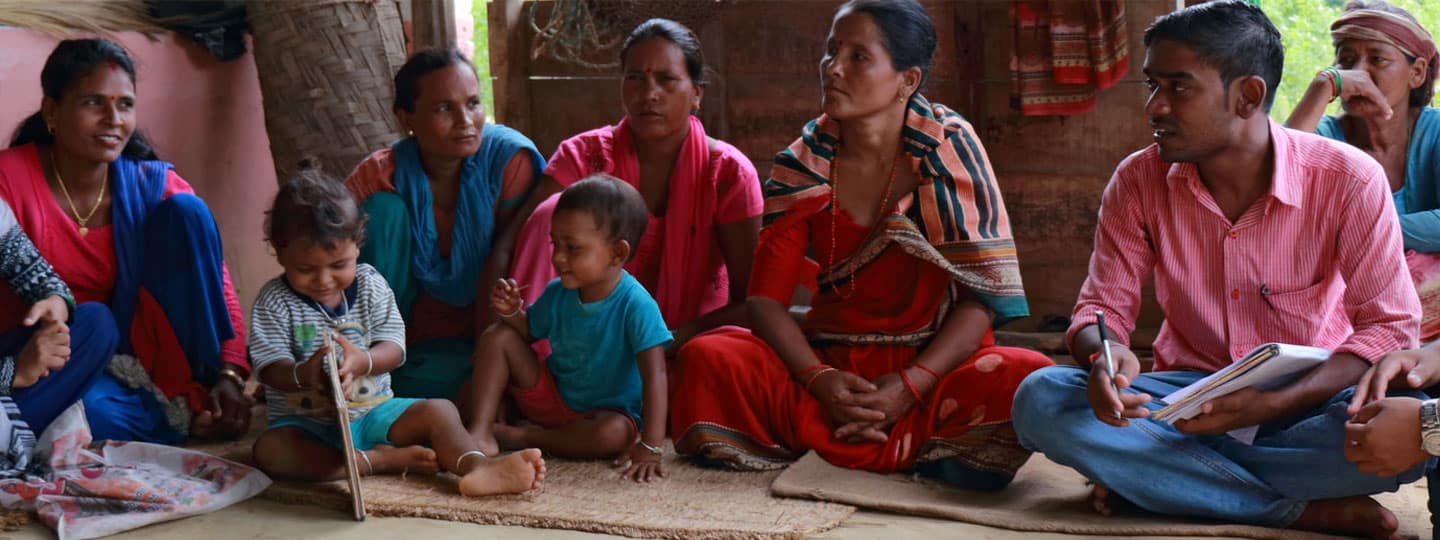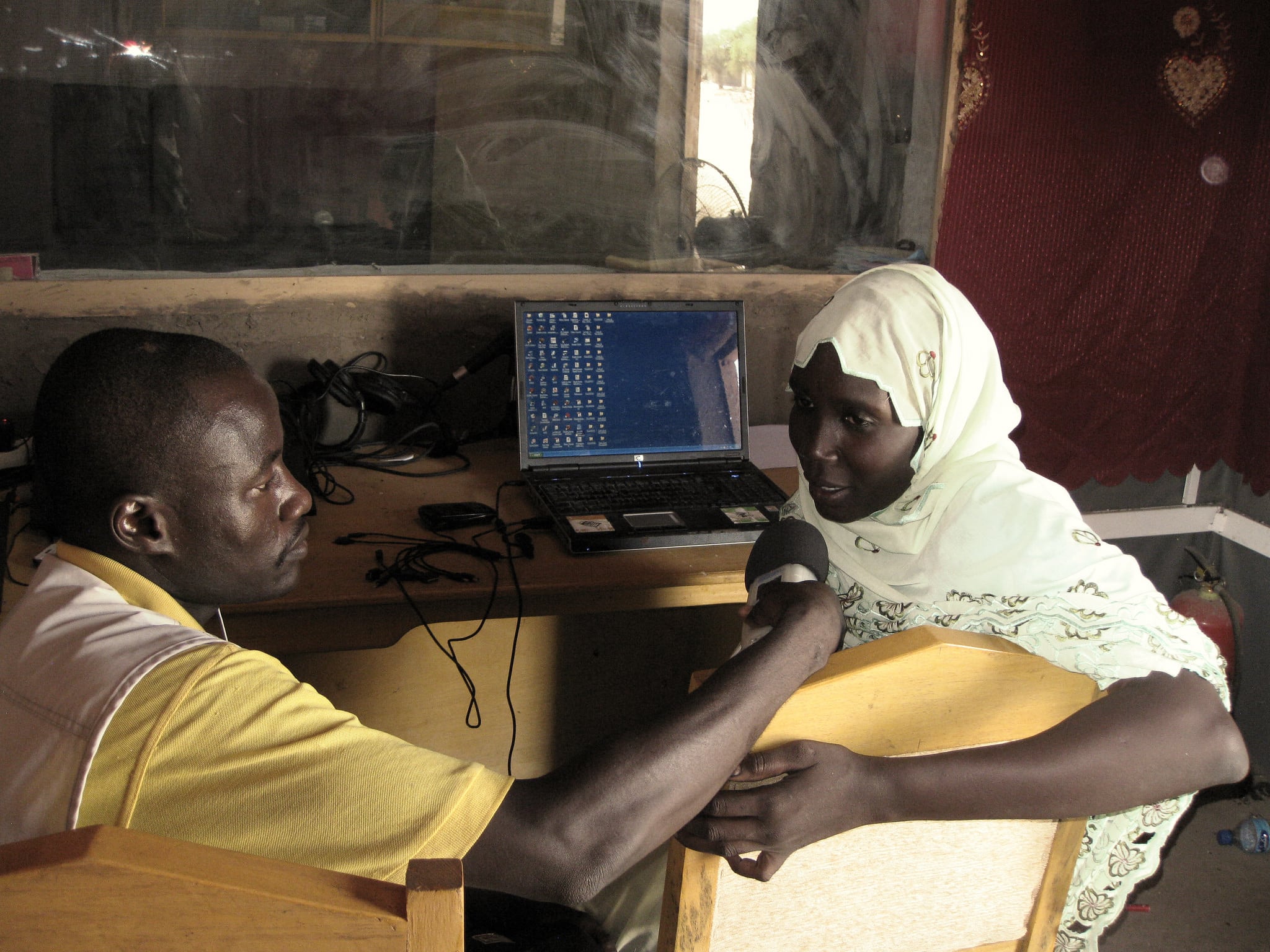The Interactive Loop: Community-Driven Solutions
We combine direct community engagement and participatory media and technology. Our projects are designed around the priorities, experiences, opinions, and solutions of the communities with whom we partner. Every program has multiple touch-points that integrate community solutions and feedback. We call this a generative feedback loop.
Direct Community Engagement
Participatory Media & Technology


Formative Research
Formative Research
A critical first step before we launch our programs. We look at the attitudes, behaviors, and social norms of local communities through a variety of data collection methods. For EAI, this first step helps us build rapport and co-create solutions with our partner communities.
Stakeholder Engagement
Stakeholder Engagement
We gather essential representatives and individuals who will influence and be affected by our program design. We create a system to feed stakeholder inputs into the program design and engagement over the course of the program.
Capacity Building
Capacity Building
The process to equip individuals and communities with the understanding, skills, and access to information, knowledge, and training that enables them to be more active and informed citizens and take on leadership roles in their communities. This includes personal and professional development.
Co-Created Communication Programs
Co-Created Communication Programs
EAI partners with communities through Content Advisory Groups, Listening, Discussion, and Action Groups, and other methods to write and produce media that uniquely reflects the experience of the community. These groups enhance our ability to increase targeted attitude and behavior change, help decrease backlash on sensitive issues, and mobilize local action.
Interactive Feedback
Interactive Feedback
EAI designs programs with multiple inflection points for community feedback such as interactive voice response; polls and surveys conducted by community researchers; media packages produced by community reporters and other customized feedback loops. We believe communities have the solutions to their problems.
Social Action
Social Action
By co-creating solutions with communities our programs increase social capital, empowerment, and leadership leading to the emergence of new actors courageously championing important social issues and actions.
Learning & Adapting
Learning & Adapting
Adaptability is central to our program approach. We use survey data, evaluation tools, reflection meetings, in-depth interviews, community, and facilitator feedback, and randomized controlled trial data to continuously evaluate and improve our programs. By creating real-time learning and feedback loops, we can design iteratively and adapt as necessary to achieve our goals.

Formative Research
- Literature Review/Problem and Context Analysis
- Focus Groups
- Qualitative Participant and Influencer Interviews
- Alliance Assessments e.g.partnership and network landscaping
Stakeholder Engagement
- Informative and Consultative Stakeholder Meetings
- Townhall Meetings
- Content Advisory Groups
- Community Roundtables
- Shuras and traditional forms of community gathering
- Youth Clubs
- Community Researchers
Capacity Building
- Tech Camps and Hackathons
- Lifeskills Training
- Advocacy Training
- Leadership and Empowerment Workshops
- Participatory M&E Training
- Gender and Inclusion Training
- Social Media Influencer Training
- Strategic Communications Planning/Campaign Development
- Content Development Training
- Scriptwriting and Journalism Training
Co-created Communication Programs
- Serial Dramas
- Chat and Morning Shows
- Magazine Programs
- Documentary and Narrative Films
- Original Television Series
- Street Theater
- Music Videos
- Digital Media Campaigns and Branding
- Community Reporters
Interactive Feedback
- Social Media
- SMS platforms
- Interactive Voice Response (IVR)
- Radio and Television Call-Ins
- Surveys
- Contests and Games
Social Action
- Learning Discussion and Action Groups (LDAGs)
- Public Resource Use and Service Delivery Overisght
- Norms Diffusion
- Establishment of Civic Groups
Learning & Adapting
- Baseline, Mideline, Endline Surveys
- Monitoring & Evaluation Tools
- Approach, Strategy and Methodology Reviews
- Periodic Review and Reflection Meetings
- Participatory Community Mapping and Appraisals
- Random Control Trials (RCTs)
We bring our approach to life through these methodologies

Asset and Vision-Based Programming
Our approach to empowerment is aligned with positive youth development and is infused across all our global programming. We maintain that all individuals, including at-risk and vulnerable youth or those with counter-normative or “radical” views, have assets that can be leveraged and oriented towards positive outcomes.
As a result, our dynamic approach to preventing and countering violent extremism recognizes, enhances, and channels the potential assets of all individuals – such as agency, commitment, leadership, and self-efficacy – and identifies positive pro-social pathways that help to reorient youth impulses, attitudes, and behaviors away from violence and toward civic empowerment.
We help communities connect their new skills to resources and opportunities that help society overcome social exclusion and marginalization. Without these opportunities for success and growth at the local and regional levels, youth are more likely to engage in self-destructive and risky behavior with gangs, criminal networks, or armed opposition groups.
In a world where youth and vulnerable communities are too often defined by their risk, our efforts strengthen youth assets, foster local agency, bolster an enabling environment, and empower tangible local contributions to social change.

Partner with Us
Work with EAI to expand the evidence for norms change and asset-based programming.

